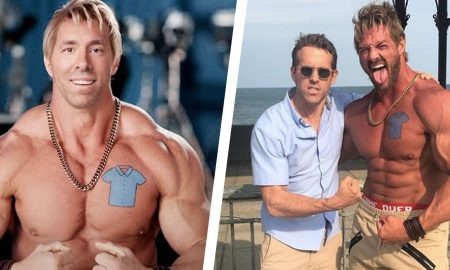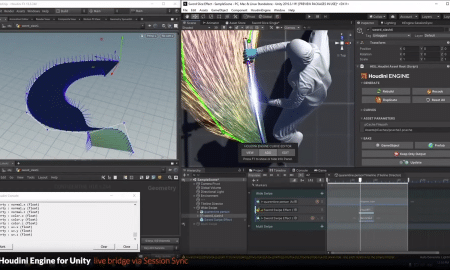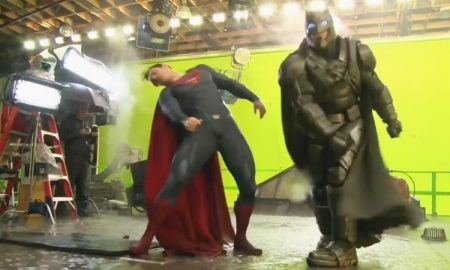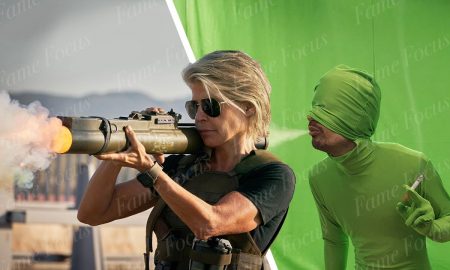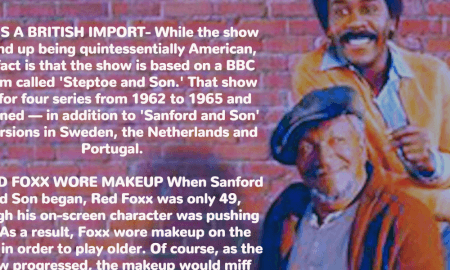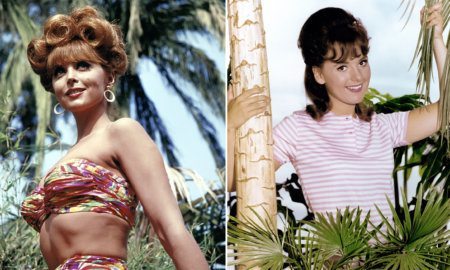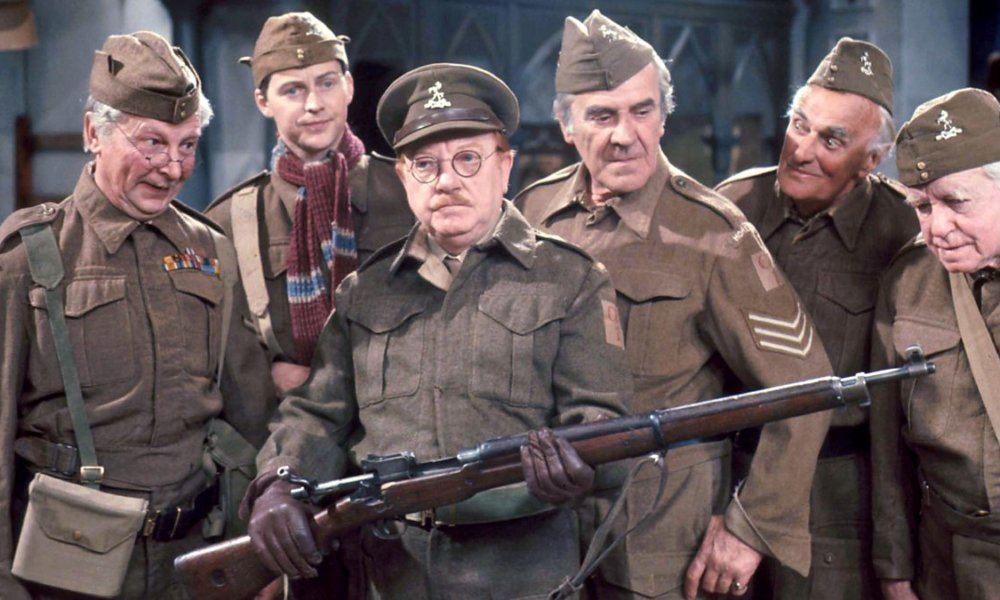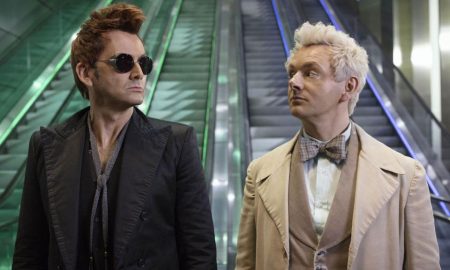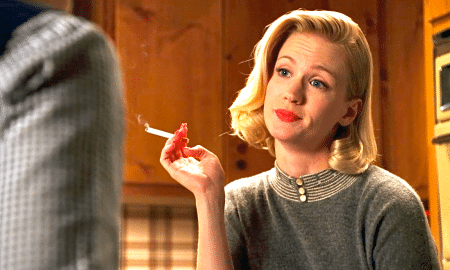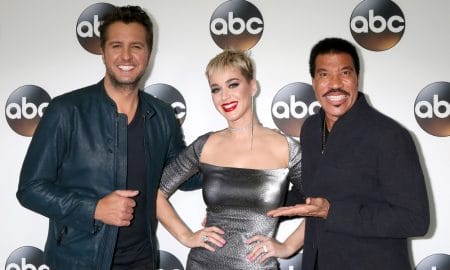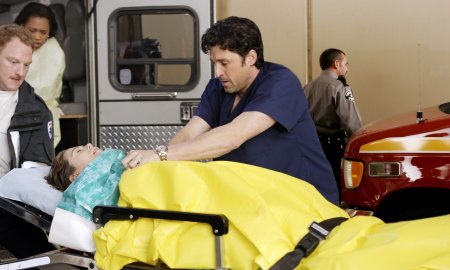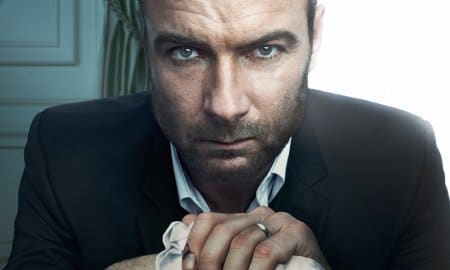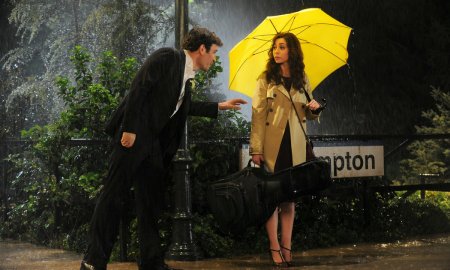In America, the Second World War carried with it several stories not of the men who went off to war, but of those men and women who stayed at home and attempted to serve the only way they knew how. In other countries, this phenomenon of helping the Allied cause on the home front was no different. In Britain, a portion of these willing spirits were represented by the Home Guard, men who were excluded from combat due to age or physical issues. It was these men that were the subject of one of British television’s most celebrated sitcoms. From 1968 to 1977, these old men, this Dad’s Army, was on the job protecting British borders and making comedy history.
1. The Pompous Boss
It was in 1968 that Captain Mainwaring (played by Arthur Lowe) appointed himself the leader of the Local Defense Volunteers in Walmington-On-Sea. In the decades since, Mainwaring has gone on to inspire some of the most wretchedly wonderful bosses in human history, including The Office’s David Brent (aka, the precursor to Michael Scott).
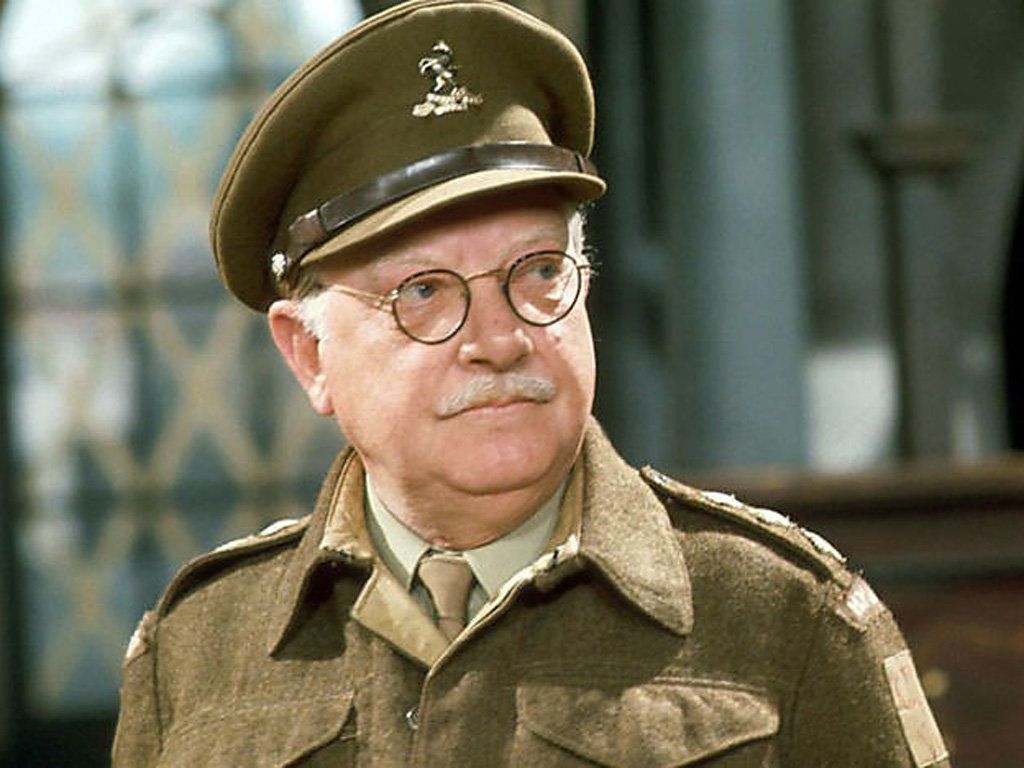
2. The Long Shot
Series creator/co-writer Jimmy Perry actually began his career as a background player. In fact, he wrote Dad’s Army and handed it off to showrunner David Croft in order to help secure a part for himself. Of course, Croft thought the script had merit, so he forwarded it to the BBC’s Head of Comedy, Michael Mills, to get the ball rolling. Once it was safely assured that the Home Guard wouldn’t be the subject of ridicule, the series was greenlit.
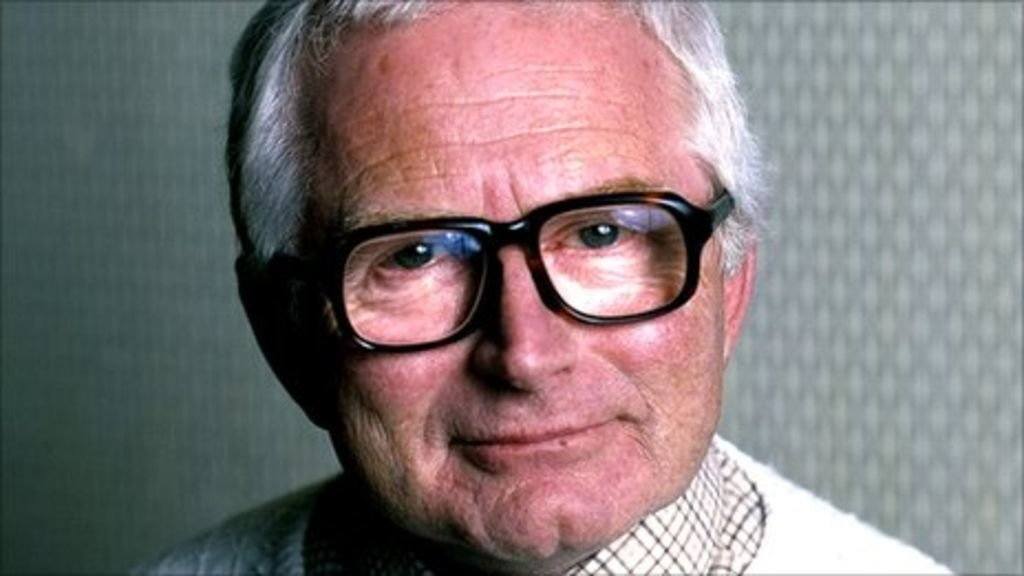
3. Jimmy Perry Was a Home Guard Vet
Dad’s Army co-writer and creator was actually a veteran of the Local Defense Volunteers (the forerunner of the Home Guard). Being seventeen when he joined, Perry was ineligible for combat duty, though he still suffered his own hardships. His mother was opposed to him joining the LDV, because she worried he might catch cold being out at night.
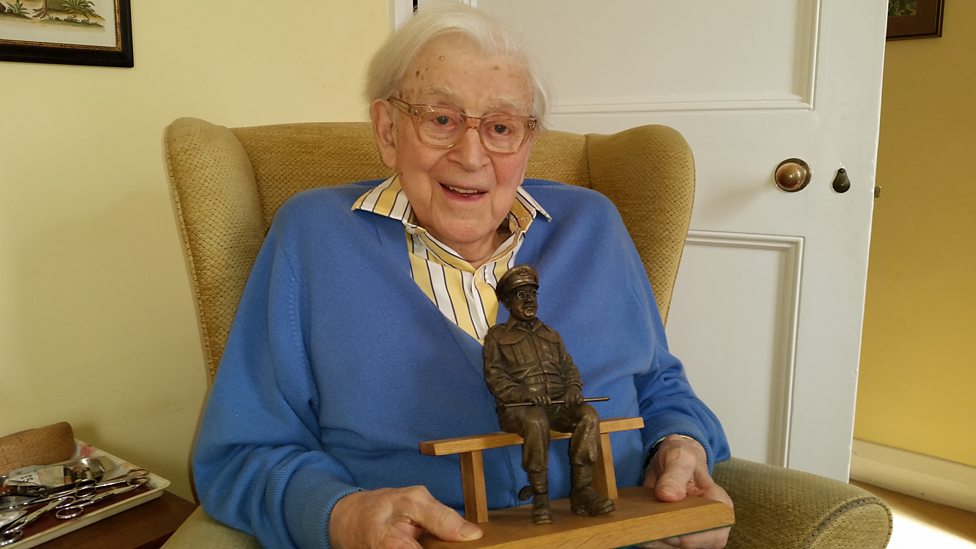
4. The Benefit of Michael Mills
It’s a good thing that Mills was let in on the fun, because he’s the one who added several touches that became hallmarks of the series. Outside of the three main leads, he changed all the characters’ names, the town’s name, and even the series’ name. Originally, the comedy was supposed to be called The Fighting Tigers.
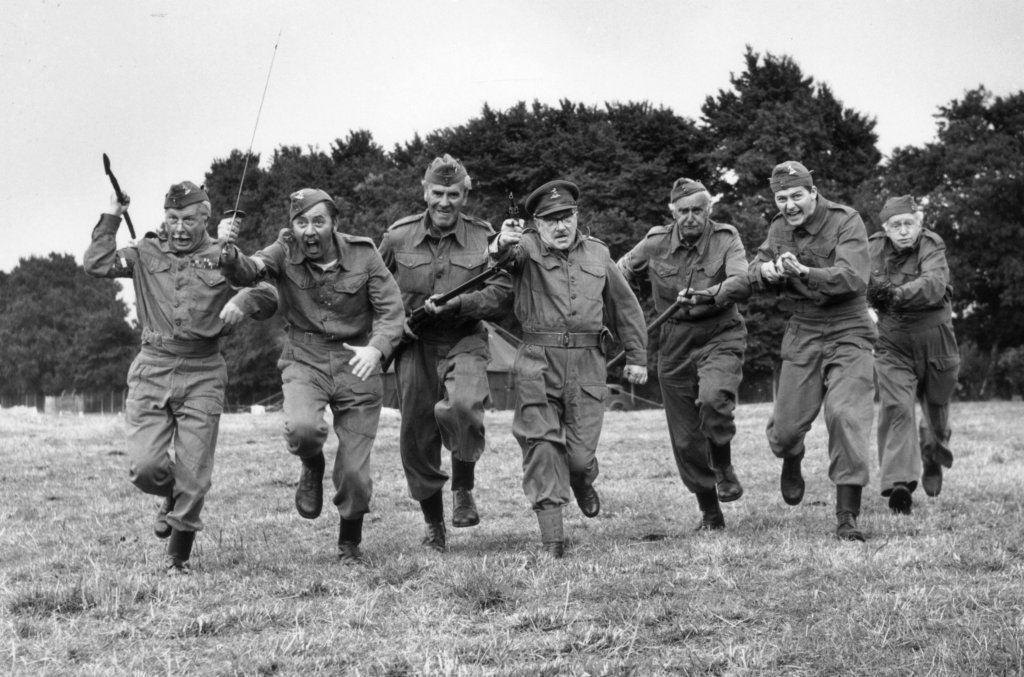
5. Test Audiences Thought It Sucked
Thank goodness David Croft doesn’t check his inbox. When the pilot was initially shot and screened for test audiences, the reaction to the show was less than optimal. In fact, the majority of the audience thought the show was terrible. Thankfully, the crafty production team put the feedback at the bottom of David Croft’s inbox, so he didn’t actually see the results until months after the show’s successful premiere.
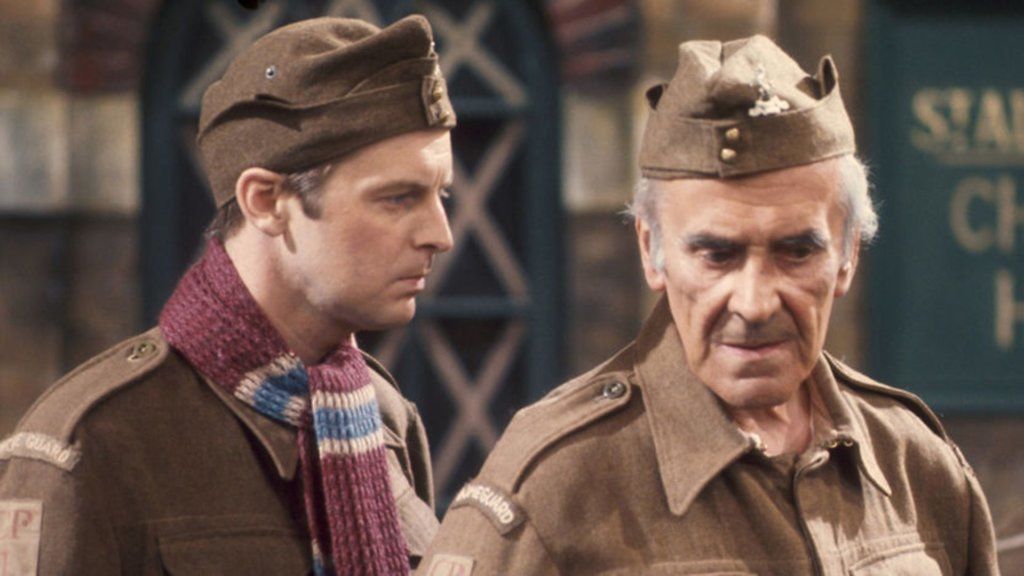
6. Blending A Dark Truth
Early in the series — especially in the first season — Dad’s Army wasn’t afraid to make a few political points on the Home Guard’s behalf. In some episodes, the platoon is equipped with cardboard guns. In spite of that fact, the plots of several episodes have these dummies willingly put themselves in front of the German advance in order to even slightly delay any invading force.
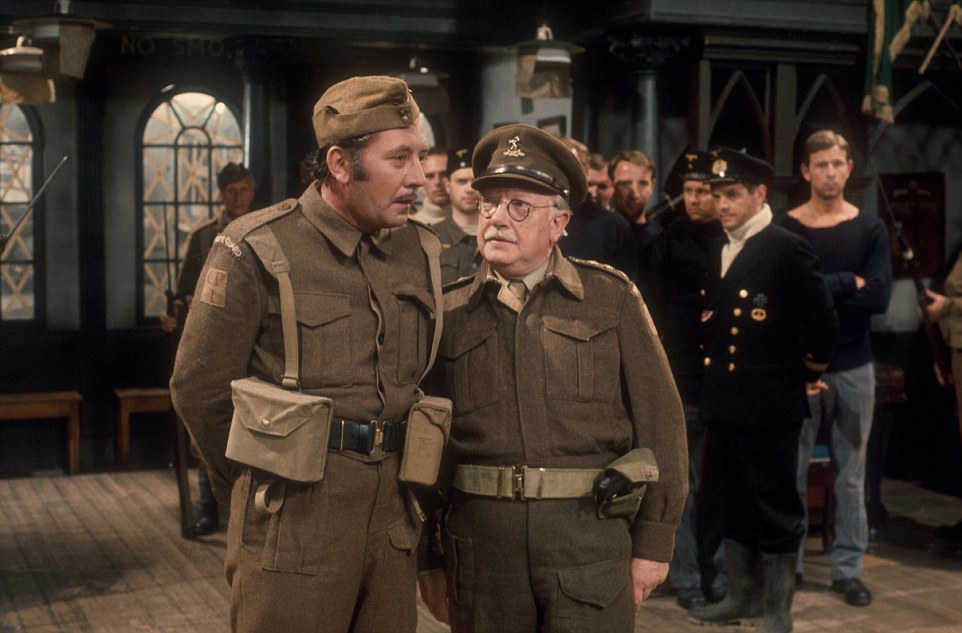
7. Perry Based Pike On Himself
Throughout the series, Ian Lavender’s Private Pike — the youngest member of the platoon — is a coddled mama’s boy, always prevented from truly becoming a man. He drives home the image of the real young boys fighting in wars, but in his thick, woolen scarf, he’s also a riot. For his sissiness, Pike is often the target of ridicule. Just the kind of self-deprecating fool a writer would base on himself.
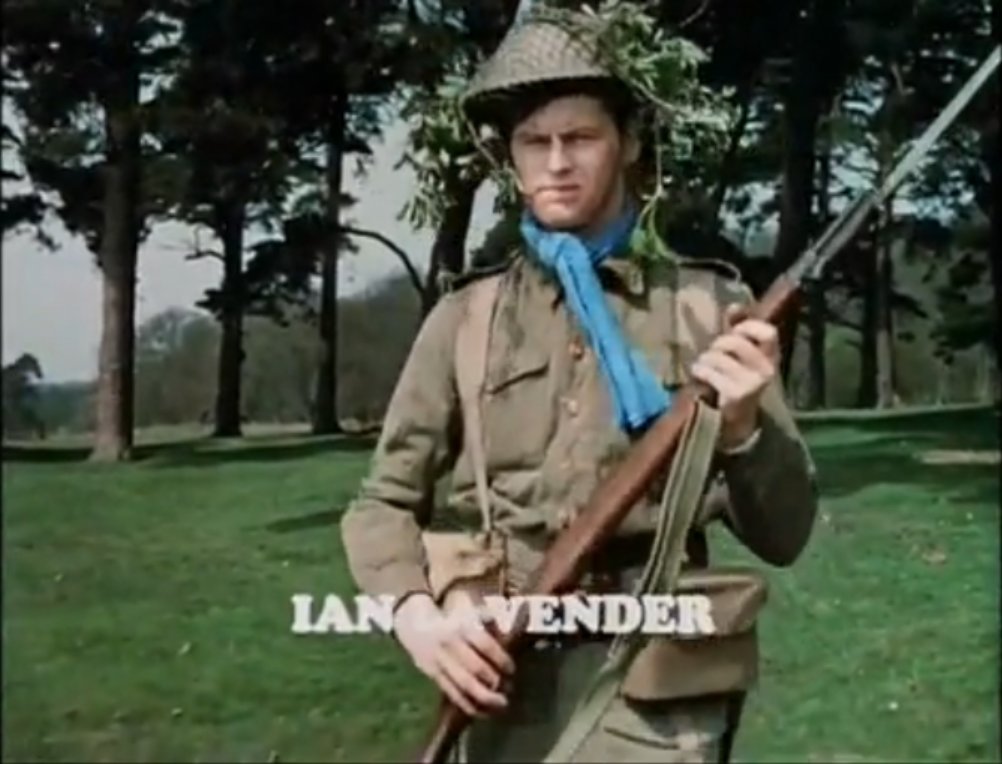
8. About the Credits
When Dad’s Army was initially planned, the creative minds had something a little more severe in mind for the credits: they’d hoped to include footage of marching Nazis and hungry refugees to help heighten the very real threat faced by the Home Guard. These credits were deemed too offensive, and subsequently replaced with the animated sequence of an encroaching army of swastika-laden arrows.
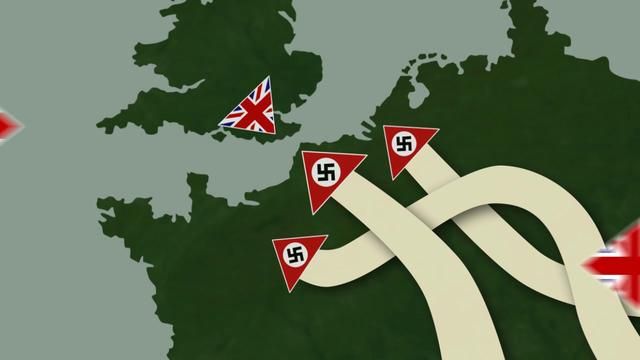
9. Jimmy Perry Conceived the Theme Song
Perry wanted something catchy for the song’s main theme, so he invented an ode to wartime music in “Who Do You Think You Are Kidding, Mr. Hitler?” He composed the music alongside Derek Taverner and even went so far as to convince one of his childhood idols — Bud Flanagan — to sing the catchy theme for a pauper’s sum.
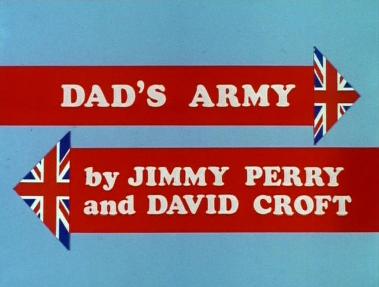
10. ‘Dad’s Army’ Has Been Widely Adapted
You likely know about the film adaptation that hit screens recently, but Dad’s Army has seen a variety of forms since it debuted in 1968. In addition to the film, Dad’s Army has already had its scripts adapted into radio plays and the concept itself has been adapted to a stage play, as well. That, plus the show’s 9 season, 80-episode run is pretty damn impressive.
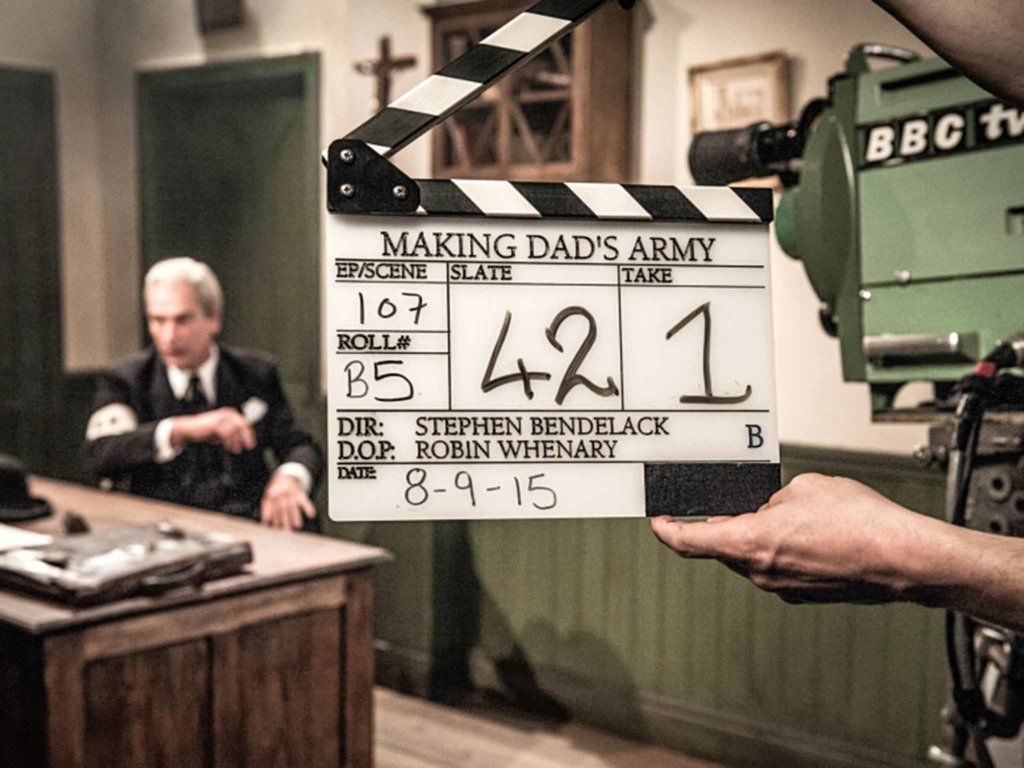
11. The Almost Mainwaring
Fans of the show find it pretty difficult to imagine anyone else besides Arthur Lowe embodying the bank manager by day LDV leader by night George Mainwaring (in fact, some of the cast would swear the two men were basically indistinguishable). However, BBC bosses were very much against Lowe at first. At one point, they almost hired future Doctor Who actor Jon Pertwee instead.
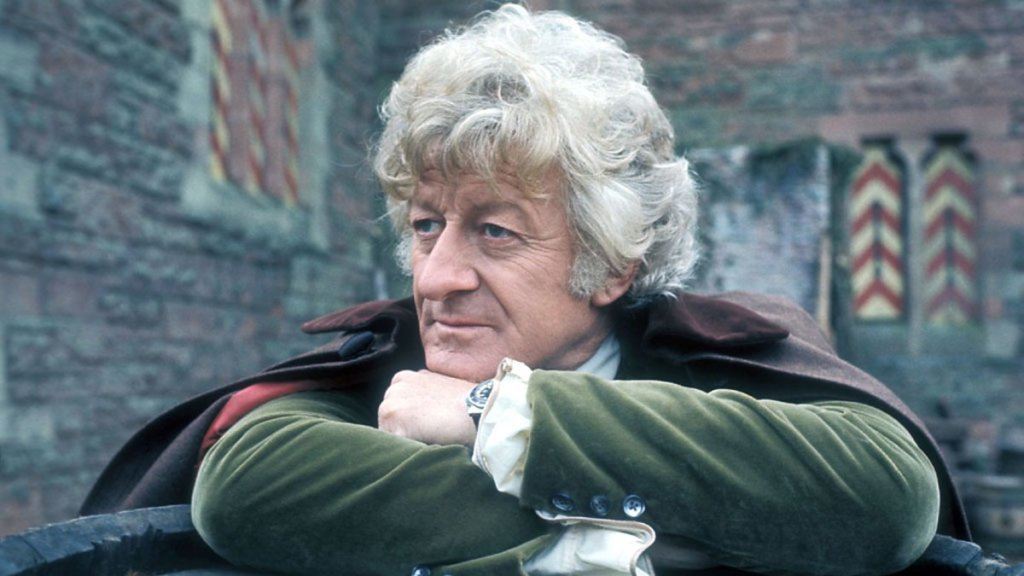
12. Lowe’s Particular Tastes
Speaking of the show’s wonderfully talented star, there may or may not be a reason that some of his fellow cast mates thought he resembled his onscreen character a bit too much. Arthur Lowe was extremely particular about which gags he’d film and which he wouldn’t. He may have had no problem looking like a bufoon, but he was always a buffoon with his pants on. Lowe had a clause in his contract that he’d never have his pants removed.
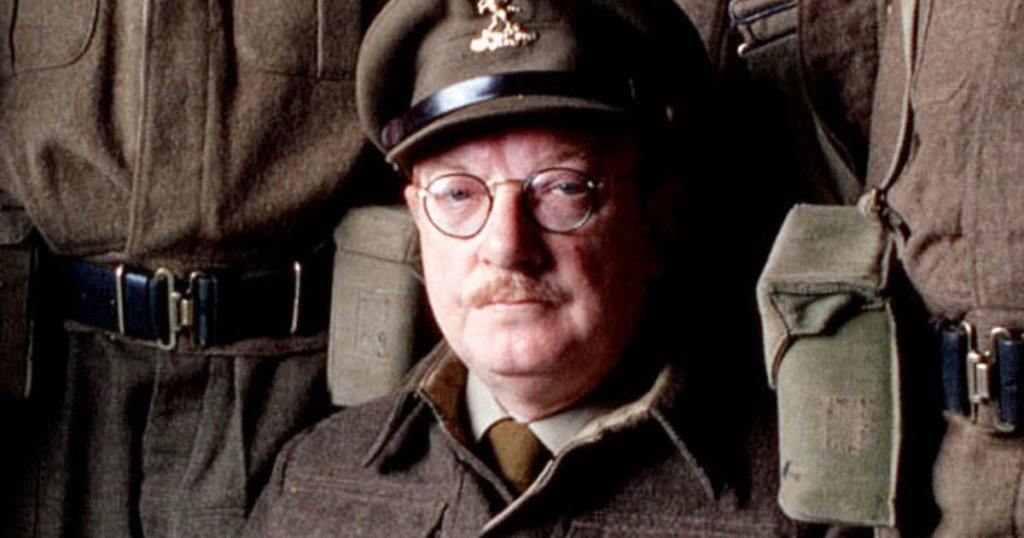
13. Several Cast Members Were Actual Vets
Since the show featured older cast members and since it was shot in the late 1960s, there were several BBC actors who actually fought in the Second World War. Arthur Lowe was a Sergeant Major, John Le Measurer was a Captain, and David Croft was a major. Private Godfrey (Arnold Ridley) had actually fought in both World War II and World War I.
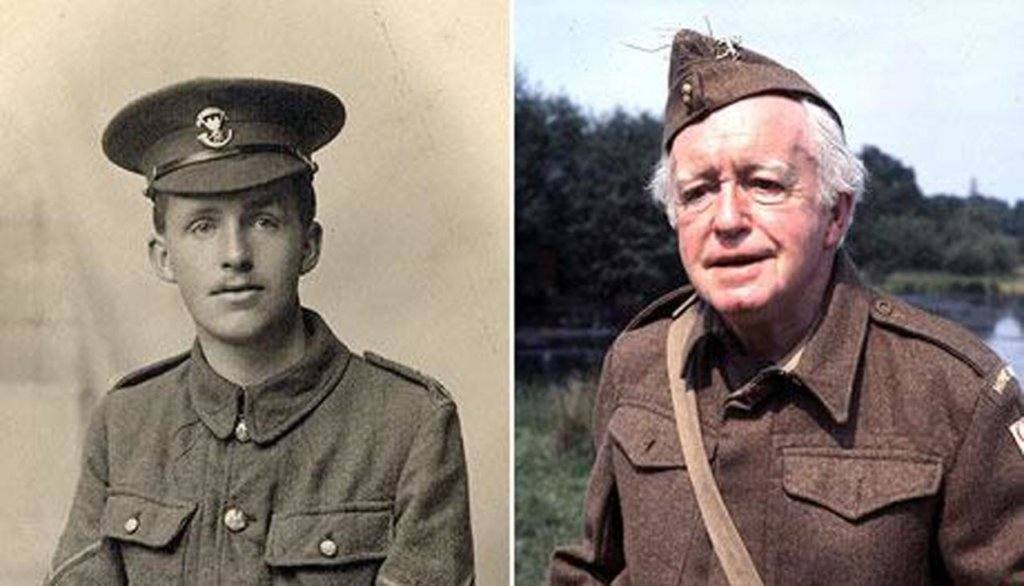
14. ABC’s Ill-Thought Remake
In proof that America has been ripping off solid British TV since the beginning of the invention, at one point, ABC attempted to remake Dad’s Army for American audiences. Titled The Rear Guard, the show focused on the American Civil Defense. The series was never ordered after the pilot, probably because the thought of German’s invading mainland America was preposterous.
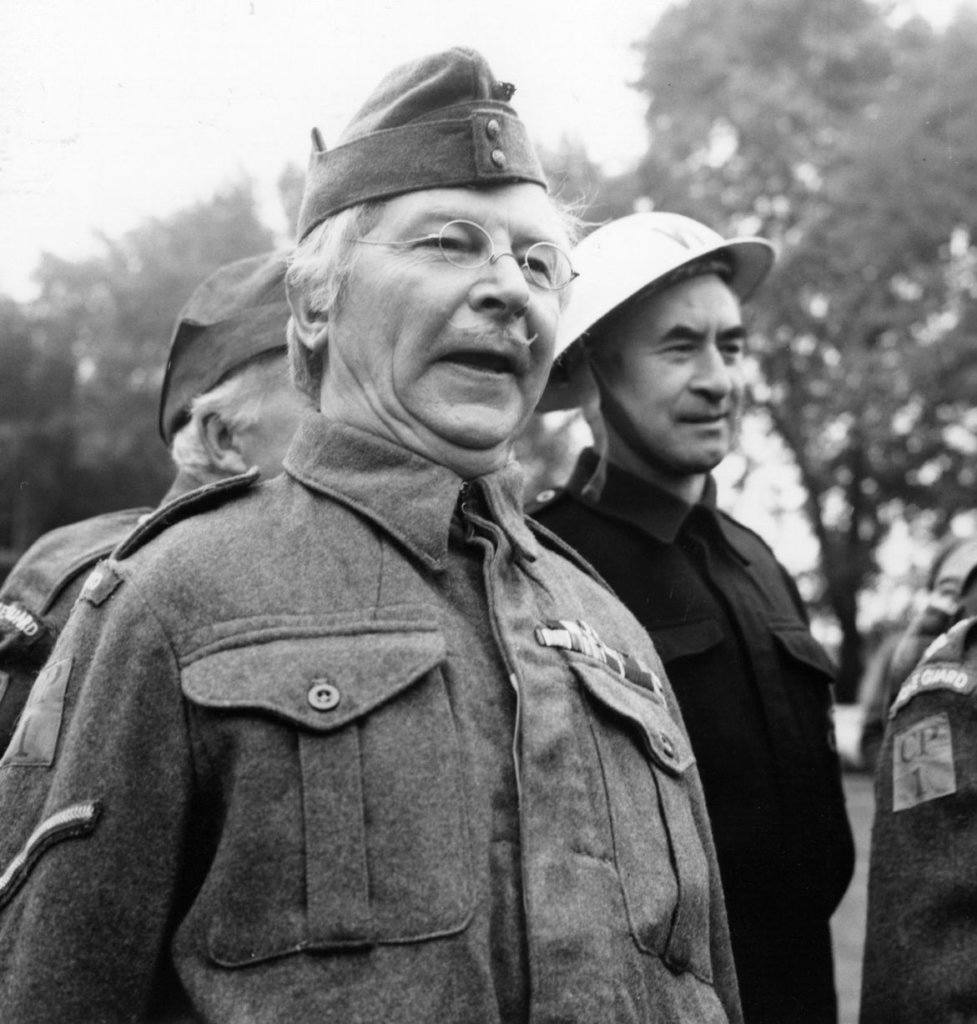
15. Mortal Kombat!
Back when Sega was making video game consoles, they adapted the mega popular franchise Mortal Kombat for their Sega Mega-CD console. The port was developed by a British game company who simply couldn’t resist tossing in a little Easter Egg. The code — called “Dad’s Code” — allowed the player to rename the game’s fighters after characters in Dad’s Army.
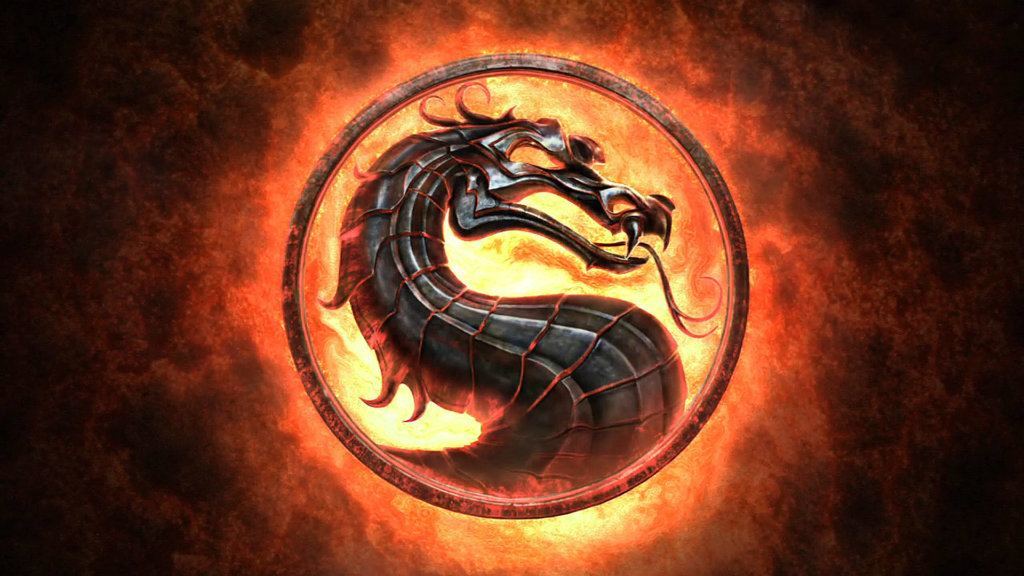
16. Two Original Cast Members Made Cameos in the Movie
The movie version of Dad’s Army came out in February 2016 to mixed reviews. It starred Catherine Zeta Jones and Bill Nighy, and the plot was meant to take place shortly after the events in the television series. Fans of the show might have recognized the familiar faces of Ian Lavender as Brigadier Pritchard and Frank Williams as the Vicar.
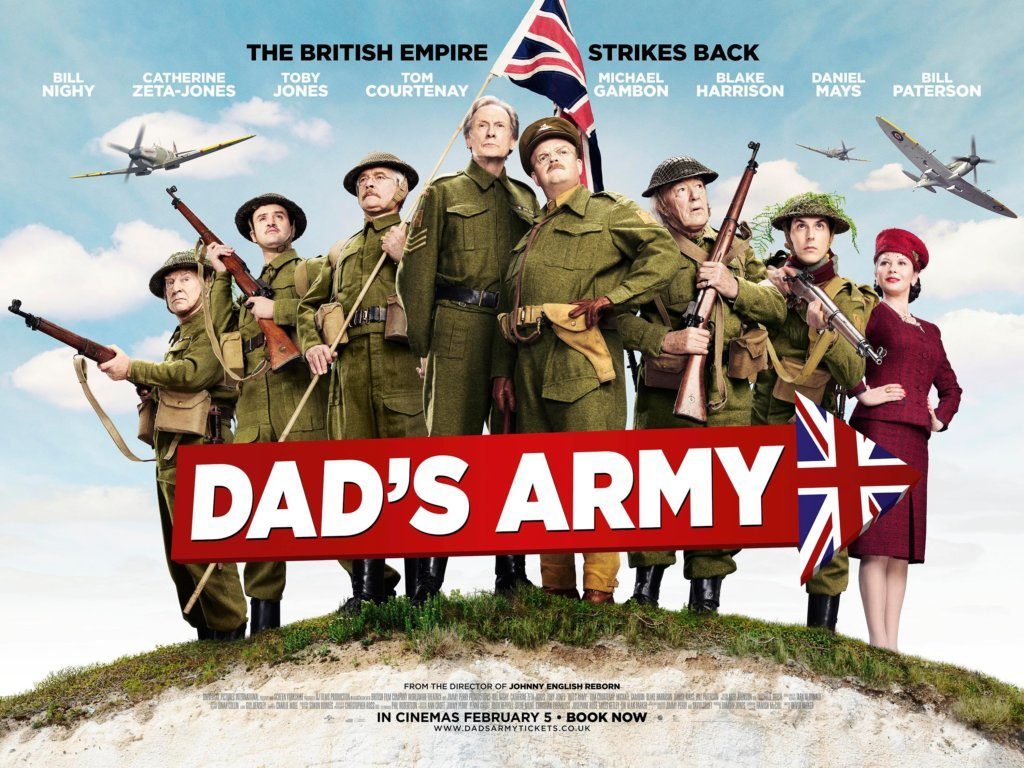
More in TV
-
Christian Group Attempts to Ban a Show They Haven’t Seen
20,000 people have signed Return to Order’s (a Christian Group) petition asking Netflix to cancel Amazon Prime Video’s new limited series...
June 20, 2019 -
10 TV Characters Who Almost Ruined A Hit TV Show
It’s no secret that most TV shows have to keep bringing in fresh blood if they want to keep fans interested....
May 4, 2018 -
All 14 American Idol Judges, RANKED
Now that American Idol is back on the small screen, Season 16 of the singing competition has us reminiscing about the...
April 13, 2018 -
15 Biggest Mistakes In Popular TV Shows
Some of our favorite TV shows from the past and present have the ability to keep us on the edge of...
January 30, 2018 -
11 Reasons You Should Start Watching ‘Ray Donovan’
With five seasons in the books and a sixth season slated for production in 2018, Showtime’s Ray Donovan has quickly become...
November 27, 2017 -
10 TV Characters We Never Got to Fully Know
These characters were an important part of their respective shows, but a huge part of them still remains a mystery. In...
November 22, 2017

